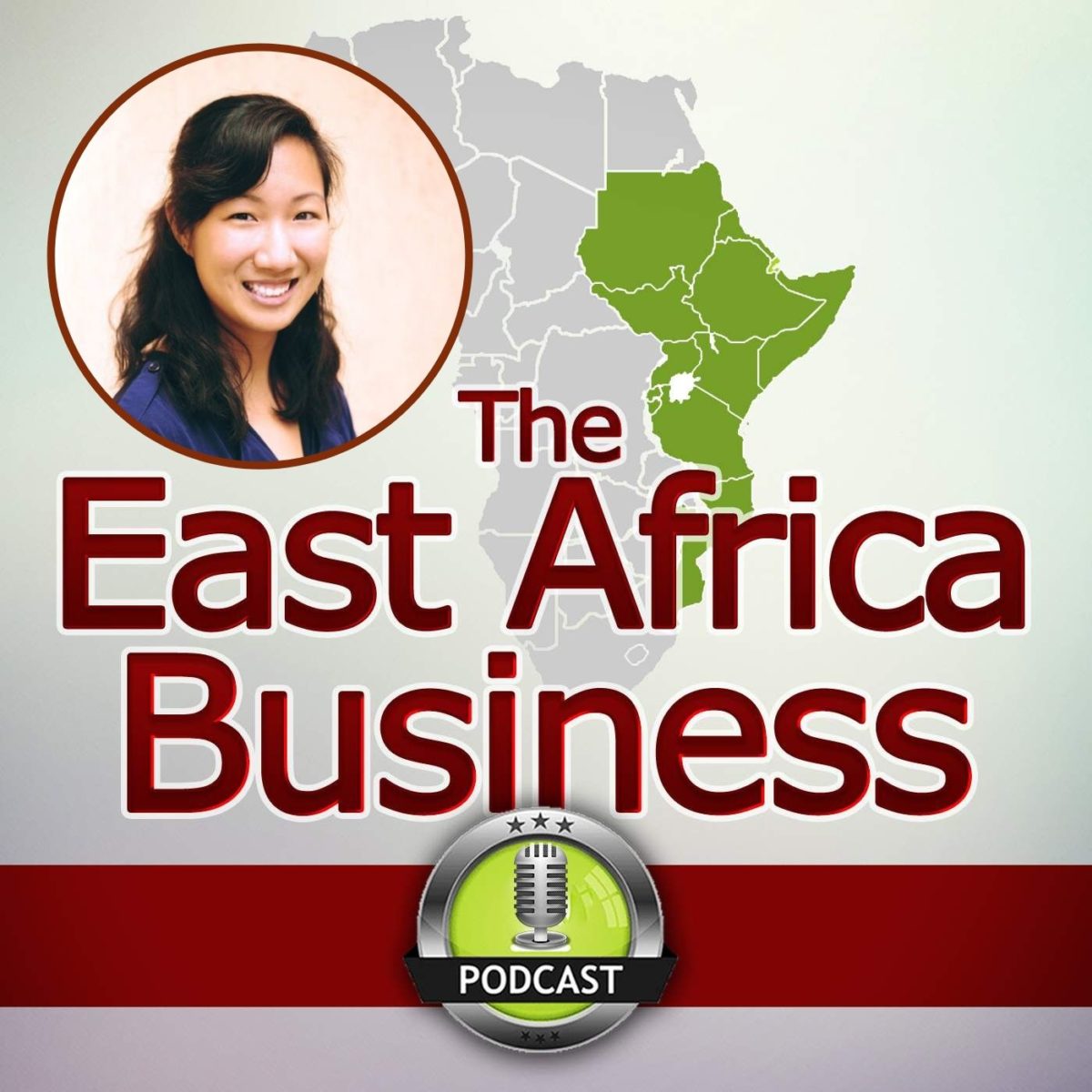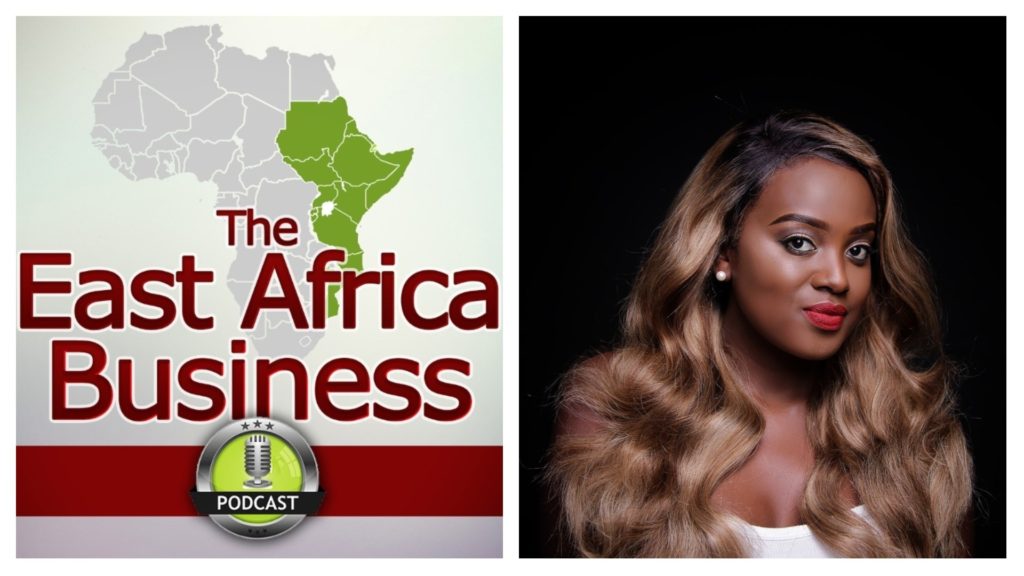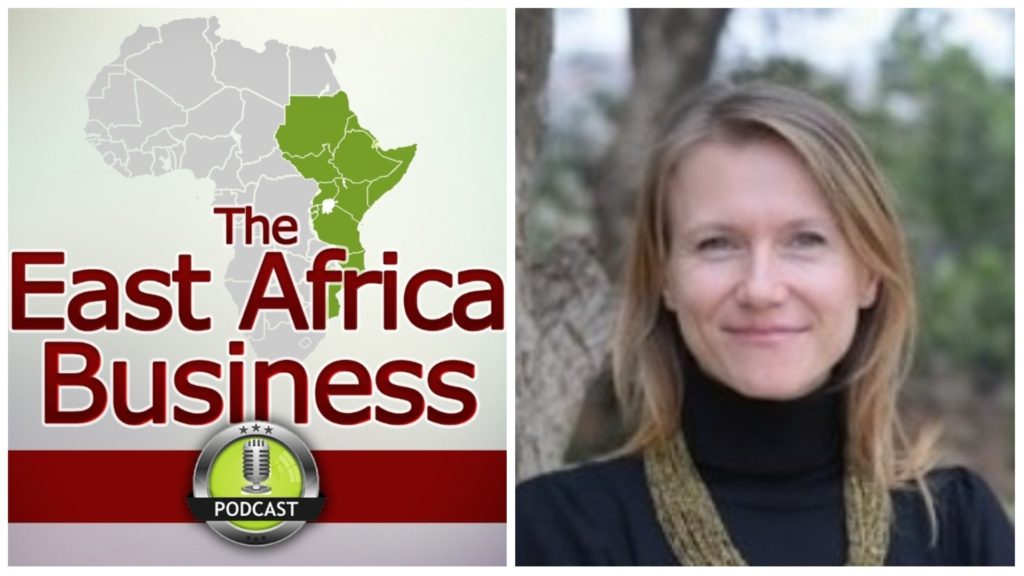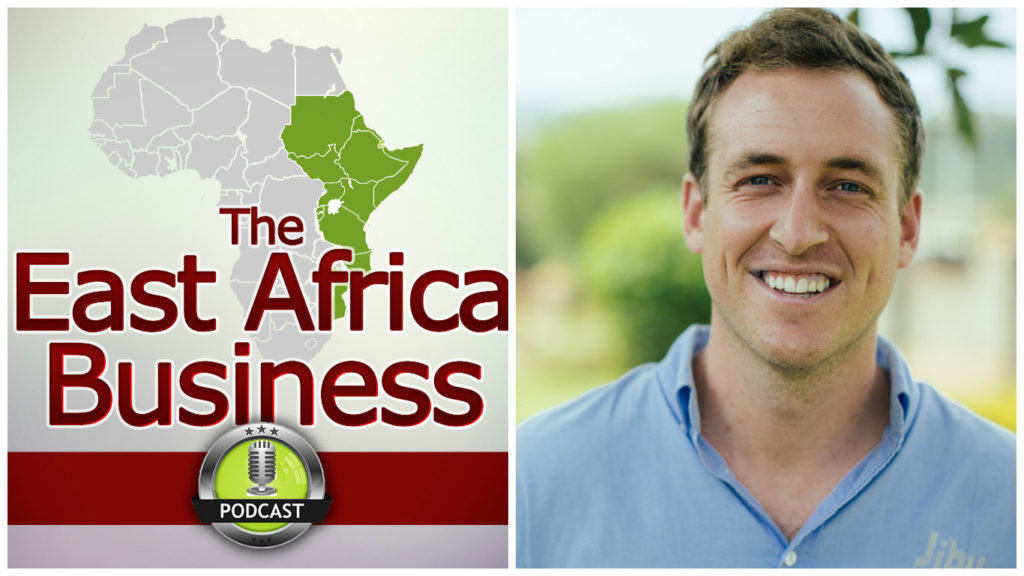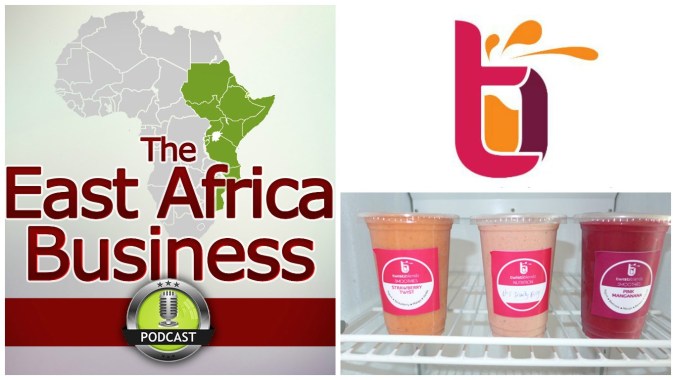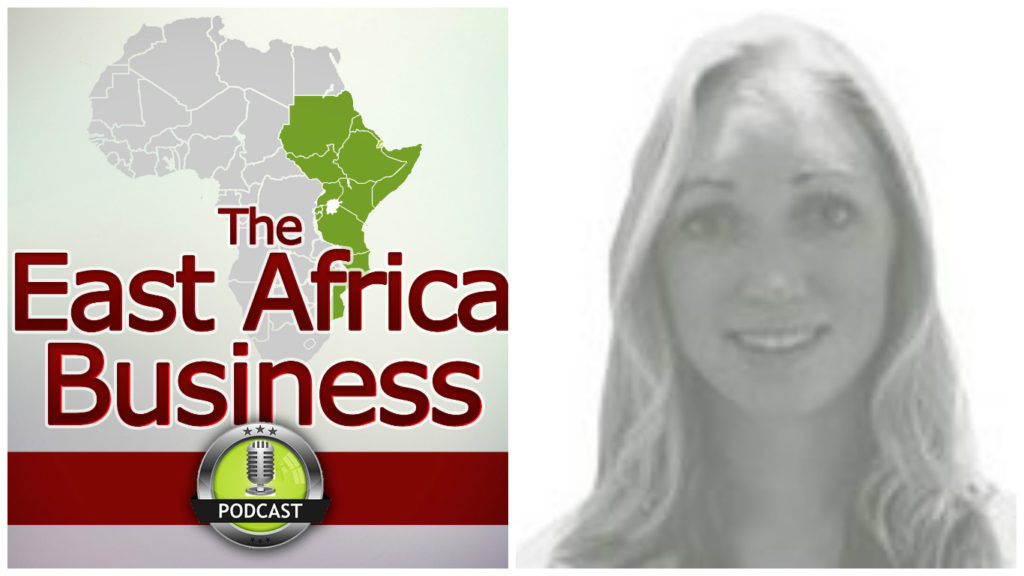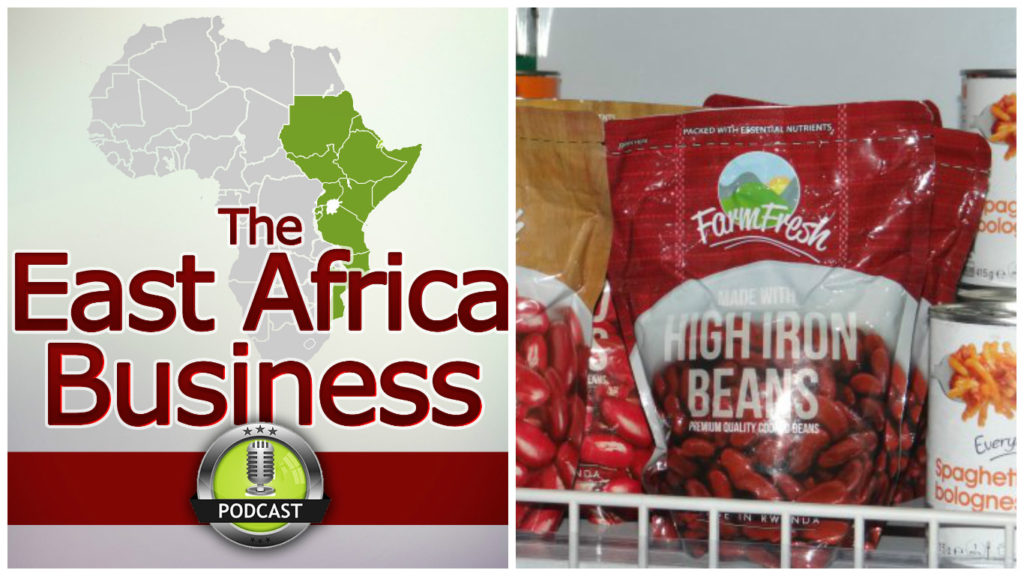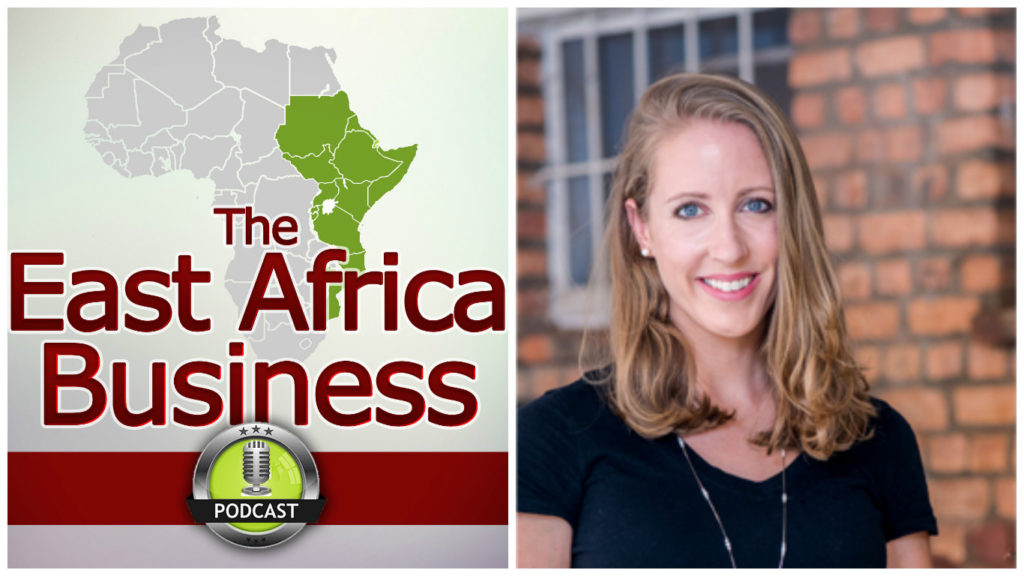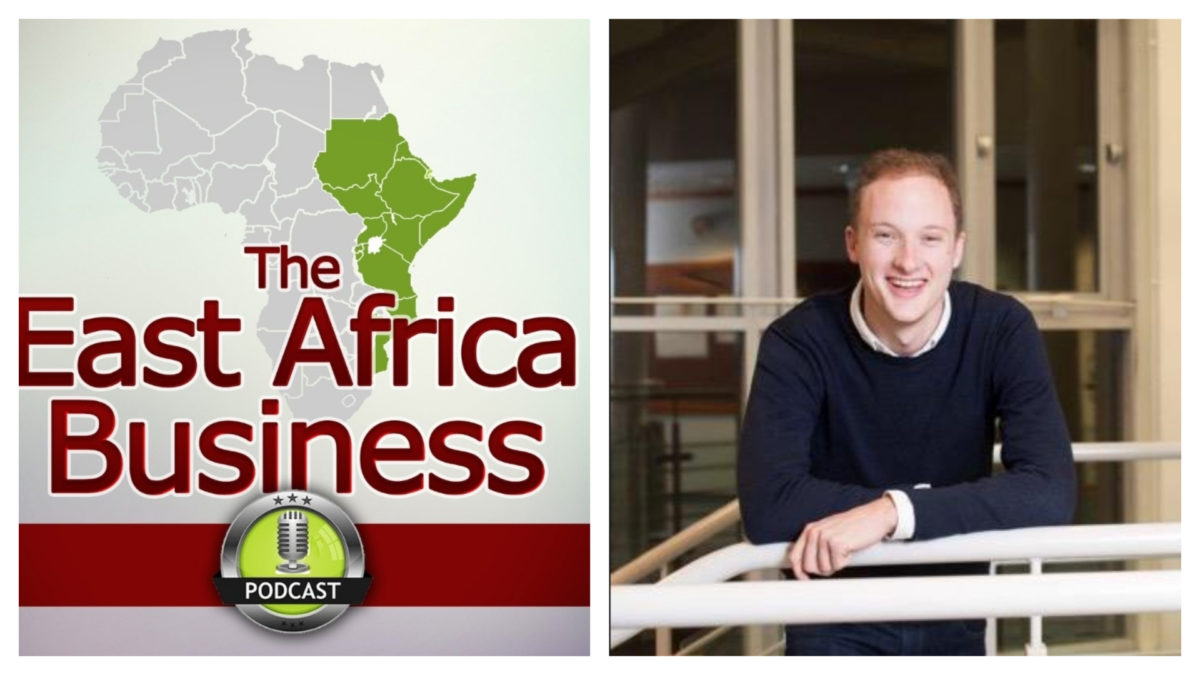Overview
In this episode, I catch up with Audrey Cheng, the founder of Moringa School.
We first did an interview in October of 2016, and so it had been over 2.5 years since we last spoke.
The initial episode is called “Coding Schools”, and so be sure to scroll back through the archives to give it a listen, if you’re interested.
Moringa School is still going strong, and now has a presence in Rwanda, as well as having taught over 1,500 students.
The fundamentals remain the same – providing a relevant skill set to people entering the workforce in emerging markets – and we chat about how the company has evolved recently.
This includes expansion into different fields from just coding (such as data science), greater outreach (such as programmes for low-income students), partnerships they’ve brokered with international agencies, and how they are at the stage of codifying their culture for the next phase of expansion.
We did this interview in a hotel lobby and so at times, you might hear some background noise from other tables.
I hope, however, that this doesn’t detract from what is a very interesting interview from the founder of a company clearly on an upward trajectory.
Sign up below to hear whenever there are new stories and episodes released on the podcast
Social Media Links
Website: https://moringaschool.com/
Facebook: https://www.facebook.com/moringaschool
Twitter: https://twitter.com/moringaschool
LinkedIn: https://www.linkedin.com/school/moringa-school/
Transcript
Sam: 00:00 Intro.
Sam: 01:51 Cool. So we’re here again with Audrey from Moringa School, Audrey welcome to the show.
Audrey: 01:55 Thank you.
Sam: 01:56 So we initially did our first interview, was it nearly like two and a half years ago. It was about coding, well, coding schools and sort of talked about Moringafor those people who have not listened to the show, could you start with a brief summary of what moringa school is and, you know, what they do? What you do.
Audrey: 02:14 Yeah, absolutely. So Moringa school, we were founded in 2014 and we aim to be Africa’s leading workforce development platform. And so our big goal is to train 200,000 knowledge workers through marketship and education in emerging markets by 2030. And so we have a, it’s quite a big goal. And we’re excited to start moving there. The current courses that we offer now are a fulltime course in software development that currently has a 90% job placement rate. We’ve also just launched our second course in data science and looking at a number of other courses that are very relevant to the needs of employers and how we can get young people the skills they need in order to get those jobs.
Sam: 02:51 Very good. Okay. Yeah. Cause I remember when we, when we first spoke you’d there was the, was Moringa school like core and prep?
Audrey: 02:59 Yeah.
Sam: 03:00 So it’s the cool one. Is that, is that the one that’s still going?
Audrey: 03:03 Yeah. So actually now we have a pre prep of prep in a core.
Sam: 03:06 A pre prep?
Audrey: 03:07 Yeah. So, so we brought it into access to our program for low income students. And so actually right now as part of our classes, 20% of our classes are made of low income students. And so the pre prep course is actually to get low income students up to speed on you know, basics of computers getting them, you know, started on software development. So by the time they enter into prep, they’re on the same level with the rest of our students.
Sam: 03:31 And how many people have gone through Moringa now?
Audrey: 03:34 Right. So at this point, we’ve, we’ve had over 1500 students go through Moringa since we started our first class in January, 2015.
Sam: 03:41 Does that mean roughly linear growth or has that, how has that looked over the years?
Audrey: 03:45 Yeah, so we’ve actually been doubling our total number of students each year.
Sam: 03:48 And are they all, all these students going through in Nairobi?
Audrey: 03:51 So we have students in Nairobi and also now students in Kigali. And so we opened a campus in Rwanda last September. And so, you know, we’ve been enrolling a number of students out there. This year is around 150 to 200 students going through our, our pre-prep prep and core in Rwanda. Yeah.
Sam: 04:10 Why did you chose Rwanda?
Audrey: 04:10 So Rwanda was an interesting opportunity that came up. We wanted to test how our school model with our systems and processes could scale into another country. And also we want us to understand the nuance of moving into another country. So in terms of building a team, in terms of scaling culture scaling our, our classroom, our TMS, our teachers, et cetera. And so Rwanda is obviously much closer to Kenya than let’s say as an example, like Ghana or Nigeria, et cetera. And so we wanted to start first with Rwanda, and we also had funding from GIZ and the Rwandan government and a lot of backing to move there. And so for us, in terms of financial risk, it was relatively low.
Sam: 04:49 They’re making it easy.
Audrey: 04:49 Yeah.
Sam: 04:51 Like, Rwanda is close, but Uganda is closer.
Audrey: 04:54 It is closer. But I guess for us is more of making sure that public sector was also very excited to bring us into, like in, so in Uganda, you know, we, we had a lot of interest from the private sector, from tech hubs, et cetera, and we actually ran a short pilot there last year. But we realized that you know, running a full program end to end in Kigali would really help us understand how we could scale into new markets.
Sam: 05:19 So, what was the process like? You said that you had some help from the Rwandan government, like did you just send them an email and say we want to do this or like, how did that sort of happen?
Audrey: 05:26 Yeah, so, the writing, the Rwandan government actually had a delegation of just a lot of different players. So whether tech companies or of course public sector, come to Kenya and actually learn from the Nairobi tech ecosystem. And so as part of that process, a number of them came to Moringa school. And when that happened, I think they were, they’re a little bit blown away. They’re like, wow, you guys are training so many students, you have such great outcomes. What can we do to bring a program like this to Kigali? And so from that visit, you know, we had a lot of conversations with GIZ, with around the and then formalized the contract to move to Rwanda.
Sam: 06:00 So what was the time between the delegates coming to Moringa in Nairobi and the office opening in Kigali?
Audrey: 06:07 Honestly, I would need to go back and check, but it was between three to six months.
Sam: 06:12 Is that it? Really? The first paying customers were arriving on Moringa Kigali offices within three, six months of that first meeting?
Audrey: 06:22 Right, right. So actually the way that’s funded, cause I think Kigali that the nuance there is that we’re training especially low income women you know, through our program. And so I think that’s, that’s been a really interesting learning experience for us, is having full classes of either low income or middle income students and all women. Right. Which, which isn’t what we do in, in Nairobi. And so the program is actually being fully funded by GIZ. And also partially by the government.
Sam: 06:51 Got it. Cause you didn’t need to worry about like marketing.
Audrey: 06:54 We still did. Yeah. We still did, in terms like finding quality students, but in terms of converting them to paying we didn’t have to worry about that in Rwanda.
Sam: 07:03 Let me see, with a room full of only women, is, does like the teaching style change or do you have to like adapt any of the teaching methodology? Because compared to like if you have guys in the room.
Audrey: 07:14 Yeah, absolutely. I think I think culturally it was just very, you know, Rwanda is very different from Kenya, right? I think when people think East Africa, a lot of them, like lump it together, but actually in terms of,you know, confidence levels, soft skills, what we realized was that the students that we were training in Rwanda, they actually needed a lot more, you know, confidence training, a lot more presentation, skill training, et cetera, more than our Kenyan students. And so, you know, we had to reshape our, our content, our curriculum for that. Right? Because we knew that when we talked to employers, sorry, employers always expect a certain level of communication skills, teamwork, presentation. And so we needed to bulk our content in Rwanda too, you know, grow to reflect that more and take out some of the technical content.
Sam: 07:56 I see. Okay. So is it the, so terms of, like, so a cultural difference you’re saying between Rwandan people and Kenyan people is that. Rwandan people generally less confident? Is that right?
Audrey: 08:07 So I wouldn’t generalize, mostly like the population that we were serving. And maybe because there are, at least for first-class or primarily low income, it did make it that, you know, we had to do a lot more of like confidence training. Right? So even the example I would give us in our access program in Nairobi, we also have to do some of that confidence building, you know, imposter syndrome, et cetera. But to do that instead of 20%, we’re doing that 100%. I think we did have to rethink the way that we’re working with students. The other thing is also language barrier. And so a lot of students were speaking French or Kinyarwandan and you know to work professionally. Like they would have to speak English. And so our tech, our teachers, our team members in Rwanda had to spend a lot of time making sure students were, you know, even interacting with each other in English as opposed to in French or Kinyarwandan.
Sam: 08:54 Wow, okay. And the, cause the business model is, at least it was, two and a half years ago, was you would get the, you get payment for doing the training and then you had, the big sell was you then place people into, into jobs. With the Rwanda operation. Was that also going into Rwandan companies? So people, people were being employed into Rwandan companies, these big companies, small companies. What were the graduates from Moringa Kigali going into?
Audrey: 09:23 Yeah, absolutely. So there were, there are a number of you know, private tech companies in Kigali. Again, not as many as there are in Nairobi. I think public sector so government, is actually a big employer. There’s also a number of like software development shops. So, you know, these software deployment shops from Europe that were actually opening up offices to create more opportunity for young people in Rwanda. And so, you know, we’ve had a number of them also.
Sam: 09:49 We say software development shop that’s kind of like they’re outsourcing.
Audrey: 09:53 Exactly.
Sam: 09:53 Okay.
Audrey: 09:54 Yeah.
Sam: 09:54 Cool. And so, you’re able to, so people who go through Moringa, Kigali can then feed into, they can then get employed by one of these software shop, software development shops. Are there many of them?
Audrey: 10:06 I think it’s definitely growing. I think the, the one thing with Rwanda that’s quite impressive is I think the president has done a really great job, you know, drawing up interests to Rwanda. And so I think because of that, you know, I think there is interest. People are excited to invest, but they just need to see the talent first.
Sam: 10:22 Got it. Okay. And so your, that’s what you’re providing. So you’re fitting into the big picture.
Audrey: 10:26 Yeah.
Sam: 10:28 Do you have plans to go to other countries?
Audrey: 10:30 Yeah. So I mean, we are doing a lot of like strategic work right now, so it’s exploring our options. So exploring, do we want to go deeper in Kenya? Do we want to expand regionally or into other countries outside of East Africa? And so we’re, we’re in the process of finalizing on that right now.
Sam: 10:47 You don’t have to divulge trade secrets, but I mean, how do you sort of think about this? How do you think, cause this thing’s quite an interesting problem like you’ve, you know, you’ve got set up in one place. How do you think about the next country to go to? Like, did you have any sort of rules of thumb or ways in which you think about it?
Audrey: 11:00 Yeah, for sure. I mean, there’s always, like a lot, like certain factors that we look at, right? So it’s either, you know, middle-class you know, like number of students who can actually pay for our program. It’s the level of education that they have. Right? So like the input of their skills into our program. And when they graduate you know, are we actually able to get them into jobs? Right. So what does job market look like? We have we look a lot at regulations around accreditation, how easy or hard is it to run our program in that country? We look a lot at, you know, the partners that are on the ground, and again, like the opportunities that come out from those partners as well. And so the, there’s a number of different factors that we, that we look at to explore this. I mean we look at other things like corruption levels, you know, and kind of pulling all these different factors so that we can pull levers to understand which countries we should really be moving into.
Sam: 11:48 Very cool. Alright. So I remember when we spoke last time you said that the Kenyan government didn’t really know how to define you, didn’t really know how to like just because you weren’t quite higher education company, but they weren’t quite sure quite what box to put you in. Now, have you had any sort of, any developments of that in terms of being able to, for regulators to understand, okay, Moringa are X and therefore we need to have better regulations for them?
Audrey: 12:13 Yeah, absolutely. So Moringa school, we are registered under TVET which is the technical and vocational education training authority. And so TVET is kind of the, I guess the body that, that probably in other countries we’re also looking to, to get accreditation from.
Sam: 12:30 Okay. And what do they, what do they need to do in order to accredit you?
Audrey: 12:34 Yeah. So they look at our space, right? So making sure our spaces actually meets their, their rules and regulations. They credit our contents, our courses, and also our teachers as well.
Sam: 12:46 How do they accredit your courses? Do they have technical experts who say this is a good way of learning how yo code?
Audrey: 12:54 Yeah, so I guess I mean, you can get accredited through a number, number of different channels. Either the government can accredit you themselves or you can get accredited through one of the like one of the big technology companies, right? So Google, Microsoft, IBM, they all have certain courses that have already gone through the accreditation process in Kenya and gotten approval, right? So if you get approval or accreditation by one of those partners like that could also go through and last one is by like more accrediting bodies like Pearson. And so, you know, like there are number of different ways and it depends on, you know, strategically which direction people want to head in.
Sam: 13:26 Right, and which way did you go?
Audrey: 13:28 Through, corporates.
Sam: 13:30 Through corporates.
Audrey: 13:30 Yeah.
Sam: 13:31 Very cool. Alright. When we sat last you, were saying that you’re about to pack up for a bit and go to the U S and Europe, to raise some money you said up to that point, you were only being self funded. And this was like the time to think about getting that taking the, expanding that, accelerating the growth of the company. How did that trip go and how did, sort of the funding situation go?
Audrey: 13:53 Yeah, absolutely. So something that’s actually quite interesting at Moringa is that technically up until now, we’re still bootstrapped. So we were actually in the process of closing around now, so like very soon, so it should be this month. But I think that’s actually been a really good experience for us because I think when, when there are certain constraints around how we spend money, we’re actually a lot more thoughtful about what we spend money on. I think that discipline within our team, within our finance team, within like the rest of the team of do we actually need to be spending this money? Will it generate a certain level of ROY? And what are we committing to, you know, what goals are we committing to actually hit versus what are we experimenting on? Right? So I think we, we’ve been really disciplined on, you know, how are we allocating resources? And really questioning whether or not we need the people or we need to spend money in certain ways. And so I think that’s quite good for us. Cause even as we bring in external money, we’re still gonna have that discipline. Right. So it means that, you know, no matter whose money we’re spending, whether it’s ours or investors, we’re, we’re still able to be really thoughtful in the way that we grow and who we need on our team.
Sam: 14:53 Oh. So all this last few years has been self-funded. That’s very cool. How big is the team now?
Audrey: 15:02 Oh man. We’re about 95 right now. And by end of the year we’ll be around 120.
Sam: 15:08 Okay. Ninety five is made up roughly of what?
Audrey: 15:11 So we have a number of teachers. So I think our classroom team is our biggest team. And we have our learning team, of course our backend office support of finance, HR people tech. We also have our marketing team of course our Kenyan country team, which includes our space operations, you know, admissions. And then our employer relations team that works with employers and make sure that we’re actually able to get people into jobs.
Sam: 15:36 Nice. And which is the most difficult to hire for, out of those?
Audrey: 15:41 So actually currently we are building out a product team. So I can, I can speak on the hard hires right now. But I think product is very hard to hire for. Because I think in this market, you know, I think a lot of people might call themselves product managers, but in terms of what they actually do, they might actually be more like project management. And so I think as we’re looking for like true product managers that, that’s been quite hard for us to find.
Sam: 16:05 How do you differentiate between project management and product management?
Audrey: 16:09 So project management is more of like managing the work plan, right? So, so the product manager, managers thinking more about the roadmap. So the strategy of the product, right? Where is it heading? What problem is it solving? What opportunities are there? So it’s, so it’s almost like the mini CEO, like for that product. So like thinking about end to end of, from, you know, marketing to admissions to classroom.
Sam: 16:29 And for you, the product is just the Moringa experience or do you subdivide into like, I don’t know, take a science course or…
Audrey: 16:36 Exactly. Yeah. So our staff engineering course will be one product like data science would be another.
Sam: 16:41 Okay, cool. Nice. so 95 people on payroll? Self funded, that’s pretty cool. Yeah. Nice. So when you look at, you say looking to take on external investors, what’s that gonna look like? Are they going to be based in East Africa or are they going to be international? What’s, what’s the sort of view and what, how have you joined to think about the types of people you want on board?
Audrey: 17:06 Yeah. So for this round we paid a lot of attention to investors who have like quite a strong reputation here among entrepreneurs. And so, you know, I think definitely entrepreneur friendly investors are really important. So people who are really willing to, you know, be curious, ask questions and back us right. Especially when times are potentially hard. So that was really important to us. You know, investors that have experience investing here in Kenya and East Africa, et cetera. And can really add a lot of value to us. So that, that’s primarily what we were looking for. Yeah. We also brought in there’s an investor we brought in from the U S as well called Entangled group and so Entangled, they’re like an education venture builder and they also invest in education companies around the world. And so they’re, you know, thought leaders in education, you know, they have Michael Horn as one of their partners who founded that, the concept of blended learning. And so people who are just like very, very sharp in the education field who can again add a lot of direct value to the work that we’re doing.
Sam: 18:03 Yeah. That’s fantastic. That’s very good. And then the idea is with this money you can then go and expand to either new markets or new markets, whether they be new countries or deeper and wider in Kenya. Very cool. How’s the, how’d you feel the company’s changed in the last like two and a half years. What bits have stayed the same about Moringa and what bits have changed in terms of, let’s call it like the internal culture?
Audrey: 18:33 Yeah, so I think what stayed the same, I mean, I, I think, you know, I was reading this article that like 70% of a company’s culture is a reflection of the founder. And so I think I’ve noticed also that as, as I’ve kind of matured in some of my thinking, like, so has the way that we work in the company. And so I think, you know, that’s probably something that’s changed. I think what’s stayed consistent is, you know, I’m a huge believer of having a lot of humility and empathy, especially in the workplace, right? Cause I think a lot of times, especially when we’re stressed, we’re really quick to judge and say, Oh, you know, like this person is not doing their work or, you know, they’re wrong, or, you know, just, you know, like moving quick to judgments. But I think really trying to instill this culture of seeking to understand but before we judge. And so I think that that’s something that’s been really important to me is that, you know, we’re always learning, right? Like I feel like I’m learning all the time and I can’t imagine how much everyone at the moringa team is learning all the time. And so I think it’s just a constant reminder that, you know, it’s okay to fail, but let’s, let’s, you know, even this idea of failure is a little bit silly to me. It’s more of like, like what are we learning? Right? And how do we add more to our repository of what we’ve learned? And so I think that that’s been big, cause I’m really big on this, like constantly like asking people, what are you learning today? Like, you know, what’s, you know, like from that, you know, what are we going to try next time? Right. So there’s just, just, just like staying curious. I think for me it’s also making sure that like, everyone’s still like having fun, like enjoying their work. Like feeling motivated. And so in the last a couple months, I think we’ve been able to spend a lot of, a lot more time like really solidifying our culture. You know, cause I think up until a certain point in terms of the number of people you have on the team, you know, like the culture is quite organic, you know, everyone adds to the culture. It’s really exciting. But at the stage that we’re at now, I’m also really clear that if we don’t almost like codify our culture you know, it won’t be clear to people how do they actually interact, right? How do they show up to work? Right? What are the ways of working ways of interacting with each other against our values and our culture. And so, you know, we’ve been spending more time like building a culture champions group at Moringa school really piloting that, getting that off the ground and making sure that people all across the team like buy into our culture and understand what it is. And so it’s definitely still a work in progress. We’re not there yet, but I think it’s just being more intentional about just documenting and putting these things.
Sam: 20:52 Okay. So what’s that, what’s that been like? So, you now have like a vision statement that you’ve, I forget what the words are, but you know, you’ve got like a big vision statement and you’ve got like, I dont know, here’s the five pieces that fit into our culture like that, How does that sort of practically, let’s say I was, and you can even like twist it a bit. So you can say this in an idealized world, if I was in an ideal world going to join Moringa, what would I sort of, what would be part of my welcome back? How would I be onboarded on say, the company?
Audrey: 21:24 Yeah, absolutely. So a lot of what we look for within our team members is alignment to our values. And so right now we have six values. And so our values include, you know, collaboration, bold, humility accountability, growth mindset, and fun, right? And so I think when we run interviews, especially our culture interviews with candidates, we look a lot at, you know, is this someone that we think can actually fit well into those values, right. And it doesn’t mean that like, that, you know, when we meet this person we think that, you know, like, like we’re the same person cause we actually were really big on diversity and making sure that our team, you know, has many different vantage points, like very many different perspectives. But I think there’s a core set of roles like that which are values that everyone needs to kind of hold true to. And soI think that’s really big for us. And then when people get onboarded you know, we’re, we’re actually revamping our onboarding system this quarter. So making sure that we’re able to explain to new team members, like, again, how do our values show up like how do we work together like with those values and what are the artifacts that we see around the company, even what we visually see that remind us of our culture. Right. How do we celebrate successes, you know, and so I think a lot of that is, it’s a work in progress for us.
Sam: 22:32 Yeah. Does that mean you’re going to have a document which says when someone does something good, this is what, would we buy them a cake or like, yeah. How do you sort of document celebrating success?
Audrey: 22:43 Yeah. So we essentially have like a work plan right now that our culture champions have come up with. And again, this is a group of individuals at Moringa school that are really passionate about culture and maintaining our culture at scale. And so they’re coming together as essentially build out like a roadmap for like, how do we actually think about our culture? How do we codify our culture for the next three to six months? And so, I mean, it’s kind of up to that, right? If they feel like, you know, for everyone to really understand our culture, we need to codify it to that detail, then yeah, that’s something that we can test and see. Does that work? Is that too, too prescriptive? Do we need to open it up a bit more. But I think a lot of it will just be experimentation and trial and error.
Sam: 23:20 Okay, cool. One thing I had recently was a way to gauge company culture is to ask employees what happens at Moringa that would not happen at, I don’t know. What happens at Moringa that would not happen at other, other companies, I mean so for you, what do you think happens at Moringa that wouldn’t happen at other companies?
Audrey: 23:41 That’s a good question. I think I’m, I’m very biased. I would love to ask team members that. Yeah. Cause I think I might have one vantage point where, for example, I think something at Moringa that I hear quite often from new team members think sometimes I say it with a little bit of surprise is, you know the, like when they walk around the office, they don’t know who the CEO is. They don’t know who the directors are or who the frontline team members are. That we actually are all extremely collaborative. And because we’re so collaborative, like when we hit a certain milestone or a certain success, we all feel it, right? It’s not like, Oh, that team has succeeded, good job them. But it’s like, no, we collectively work together to make that happen. And so I think that’s something that, that we value a lot is not you know, not like this typical Kenyan company that’s very hierarchical, but how do we really just celebrate as a community the work that we’ve been doing,
Sam: 24:32 Is that a conscious effort? Or was that just sort of naturally the way, if we’re saying that 70% of the culture is from the founder, is that just naturally the way you work or have you been quite conscious of this is something I need to be doing?
Audrey: 24:43 No, I think it is something that I am very I’ve been cognizant of since starting wearing the school because I think, you know, I’ve had experiences working for other companies where I felt really demoralized because, you know, I thought like, I have all these ideas and I have these things that I really think will like push the company forward, but it didn’t feel like anyone was listening to me. Right. And it didn’t. And I was always very frustrated cause I felt like, look, I’m talking to the customers all day or I’m, you know, I feel like I have really great insights, but the people at the top like just weren’t listening or weren’t hearing anything I was saying. And so I think by going through that, through that experience and feeling that myself, I realized like when starting Moringa school that I want to make sure that no matter how big we get, right, we always remain grounded, right? We can always be excited by new ideas, but we have to have enough empathy and we need to stay grounded. And so whether that means we’re, you know, directors, managers, right? To members that are far away from, like, from our students are spending X percentage of their time with our students and X percent of their time with our staff in general. Right? So it’s not just running from meeting to meeting, but how do we actually be more intentional about spending time with people in the frontline, right. People who are really talking to the students, all the time and employers and actually talking to the students themselves. Right. To see are we actually making an impact? You know, what else can we change to make their experience better?
Sam: 25:57 Very cool. Nice. And if you look back over the last few years, have there been any sort of like significant events or things where you’re like, boom, that’s a game-changer or something where it’s just like you sort of, you know, you might be going months and months and things are generally improving, but then something happens and that’s just like next level, are any of those good?
Audrey: 26:20 Yeah. I think it’s funny. I think in the earlier days, those were things that were more like trying than anything else in terms of, you know, how much do I really like want this and why am I doing this? I think especially the first few years, and I think also around the time when we talked last I had a lot of questions in 2015, 2016 so our first few years, on, you know, are we actually going to survive as an organization, you know? Does our business model make sense? Is there enough demand for what we do? But a big pivotal point happened in August of 2016 when we moved from what I would consider Moringa 1.0 to Moringa 2.0, and so we, you know, spent a lot of time like rethinking our classroom model, right? So who are our teachers? How do we ensure that we have market driven content? Are we actually getting students you know, to a certain level of quality so that they’re able to, to graduate and get high quality jobs. And so when we kind of like asked ourselves those questions, went back down to first principles we revamped our whole teaching system. And so I think that was a huge game changer for the organization, because we were teaching more effectively, it wasn’t as expensive as it was before and it was also way more scalable. And so, you know, that was real, very clear proof from 2016 to 2017 and then 2018 when we ran our classes in different countries around the world to test how well does this education model scale and realized that was actually very, very scalable. And so I think that was, you know, it gave us, it was a huge confidence boost. I think this year, just recently we launched a partnership with Mastercard foundation. And I think that was also a, like quite a big confidence boost to the organization just in the sense where, you know, Mastercard, they really only work with companies that they feel like have scaled and will scale like very significantly. And for us, that felt good to know that, you know, we have this big dream and also other people believe in it and are willing to support our work.
Sam: 28:06 Talk to me a bit about this partnership then. So you said like where did it come from? What’s the goal? Like shared vision, all that sort of stuff.
Audrey: 28:13 Yeah, so Mastercard foundation, they have a strategy called Young Africa Works that’s aiming to get 5 million young people in Kenya in the next five years into dignified employment.
Sam: 28:23 So 5 million young people in Kenya. That’s quite a lot. That’s like, how many young people are there in Kenya in the next five years?
Audrey: 28:30 They’re many. Many more than that.
Sam: 28:32 But no, but not like loads more, isn’t that, is that like 20%, I’m trying to think if you had, if you tell me in the next five years, what’s the population in Kenya, like 50 million? Yeah, I don’t know, if you say 5 million. And if you count young as what, what’s the definition of young?
Audrey: 28:49 Young is, I think it’s, so I’ve seen many different definitions, but I think their definition is 18 and 35
Sam: 28:54 That’s fine. Okay. Alright. Anyway, I’m just saying like that’s a stretch target. Alright. So 5 million young people in five years into dignified employment. How do they define dignified?
Audrey: 29:07 So they have a very particular definition. I have to go back and look at it, but it’s like dignified, fulfilling employment, right? So it’s not just work that is very repetitive that that doesn’t feel like the young person is able to grow and really, you know, grow within the, like their career. So.
Sam: 29:22 Okay.
Audrey: 29:22 Yeah.
Sam: 29:22 Cool. And why did Mastercard foundation want to do this?
Audrey: 29:25 Yeah, so they last year and the year before, they spent a lot of time kind of reviewing like what their next second would look like. Right? So like, you know building a new strategy and I think over time as they, you know, since the time that they were started, they’ve always been really big on education, so they’ve always funded a lot of scholarships. So they’ve been a huge proponent on education. But what they realized was that, you know, just education in and of itself isn’t enough, right? You have to be thinking of of the supply side, the linkage, and also the, the demand side. Right. And really kind of investing in the whole ecosystem. And when they were thinking about this or I mean, you know, everyone’s talking about how the populations across the content are just growing rapidly every single year, right? Like massive, massive populations. But then the question is like, where are these young people going to go? And are the current systems actually well equipped with both quality and access, right? Is education high quality enough that young people are able to get the skills that they need in order to get into the jobs? Right. Right. Now the overwhelming opinion is no. Right. And the, and the second question is around access, right? So in Kenya for example, this year only 13% of secondary school students who passed the KCSE were able to get a spot in public university.
Sam: 30:31 Really?
Audrey: 30:33 Yeah. So that’s 87% of students who don’t have that access, right. And so that number just keeps rolling over every single year because the demand is quite high, but the number of spots is quite low. And actually, even once, when those students get into university, it takes five years on average for them to get a full time job afterwards. Right. And so that speaks about the access side and also the quality side. And so I think, you know, we just need to fundamentally rethink education and training and skills development in Kenya and across the continent if we actually want to get these young people the skills that they need to succeed and to build their economies ultimately.
Sam: 31:05 Yeah. Wow. Okay. So they come to you and they’ve said, we think Moringa can pipe out this bottle. Have you had some, like maybe not commit, but what was your pitch to them as this, why, what was your pitch to them as to why you fit into that picture and have you had to commit to say, we’ll put X number of people from Moringa school or whatever?
Audrey: 31:24 Yeah. So I think for us we were really aligned with them because, you know, for us, all the skills that we teach our kind of skills for today and skills for the future, right? So they’re not skills that will be automated in this next generation. The skills that every person, whether they’re in Kenya or around the world, need in order to compete globally. And so I think Mastercard foundation, they were excited about that. They’re excited about our track record, about our success today, in terms of getting young people into jobs. And to be honest in the education space, there haven’t been that many programs that have reached a certain level of skill and also certain level of quality as well. And so I think, you know, we were able to prove that in the last couple of years, you know, we had focused and made sure that this program can actually scale and that we’re ready for that next step. And so I think, you know, when they saw that they were excited to say, okay, great. You know, we see that you’ve proven yourself the last couple years and that you have a clear plan for where the next couple of years is going and we want to support you to scale up.
Sam: 32:17 Okay, cool. And so, they just said, here’s some money, no strings attached or does it come with some conditions or like what does it even look like?
Audrey: 32:26 Yeah. Yes. So, I mean there’s definitely conditions. So you know, they gave some like technical assistance for, you know, certain areas around like research and development, right. For product development, et cetera. Investing in our teachers or our teacher training. So how do we really think about you know, our teachers at scale, so when we’re potentially in other markets or we’re in different products, how do we think of scaling up our teachers? And so I think that was a big yeah, a big conversation we had with them. A good amount of our partnership also is on scholarships. So with, for low income students, how do we, again, like keep to our 20% of all classes are low income.
Sam: 33:02 Very cool. Nice. Have there been any standout graduates from Moringa school you can think of?
Audrey: 33:09 Yeah. 100%. Yeah. We have actually quite a lot. It was actually earlier this year when I, was going into, you know, a few conferences and I kept running into our graduates. Which is really crazy. And so even for example I went to South Africa to speak at this like women in tech conference earlier this year. And actually one of our graduates was there as well speaking on stage. Right. And she’s talking about like very technical topics, you know, went over my head. I was like, Oh my God. And you know, I was blown away. Right. And there’s this other graduate that I met I went to Harvard this year, earlier in the year to speak at the Harvard Africa business conference, and, you know, I was also there to like meet people, recruit, et cetera. And it was super interesting cause you know, I was like talking to one potential candidate. And I had, you know, like all of a sudden this person came up to me is like, hey, like are you Audrey from Moringa? And, you know, I was like yes, you know, like a little bit surprised. And he ended up telling me, you know, I, you know, I went to Moringa school, actually I’m Kenyan, you know, I went to Moringa school. And from Moringa school I realized that, you know, software engineering, computer sciences is something I really want to pursue. And so he ended up, you know, applying to Harvard and he got in and now he’s an undergrad at Harvard. Yeah. So we just heard some like really wild stories recently. And it just, you know, also those really incredible stories of, you know, both low income students getting really great jobs. Some of our students are senior enough in their companies that they’re coming back to Moringa to actually hire more graduates. And so, you know, we’re really seeing a ripple effect for our work.
Sam: 34:41 That sounds fantastic. Great. So we’ll sort of finish up now, but if we were to be chatting again in another three years, what do you think we’ll be talking about when it comes to Moringa?
Audrey: 34:53 That’s a good question. I think hopefully what we’re talking about is how do you go from, how do you actually scale from your core? Right? Cause I think right now we have a proven you know, product service, which is our software engineering course. And we just launched our data science course, which is going really well. But how do you actually scale up from your court, right? How do you go into new courses? How do you go into new markets? What do you have to think about? How do you resource yourself and really prepare yourself for scale and how do you know when you’re actually ready? And so I think we’re asking ourselves a lot of these questions now and creating like really strong and thoughtful plans on how we actually get to scale. And so I’m hoping in three years we’re actually able to look back and reflect on, you know, what did we learn in that process, now that we’re in potentially, you know, multiple courses, multiple markets, multiple offerings for our students. You know, like where do we go from there.
Sam: 35:44 Fantastic and again, people can find out more at moringaschool.Com?
Audrey: 35:47 Yes.
Sam: 35:48 All that sort of stuff. Fantastic. Cool. Well Audrey, thanks so much.
Audrey: 35:51 Thank you.
